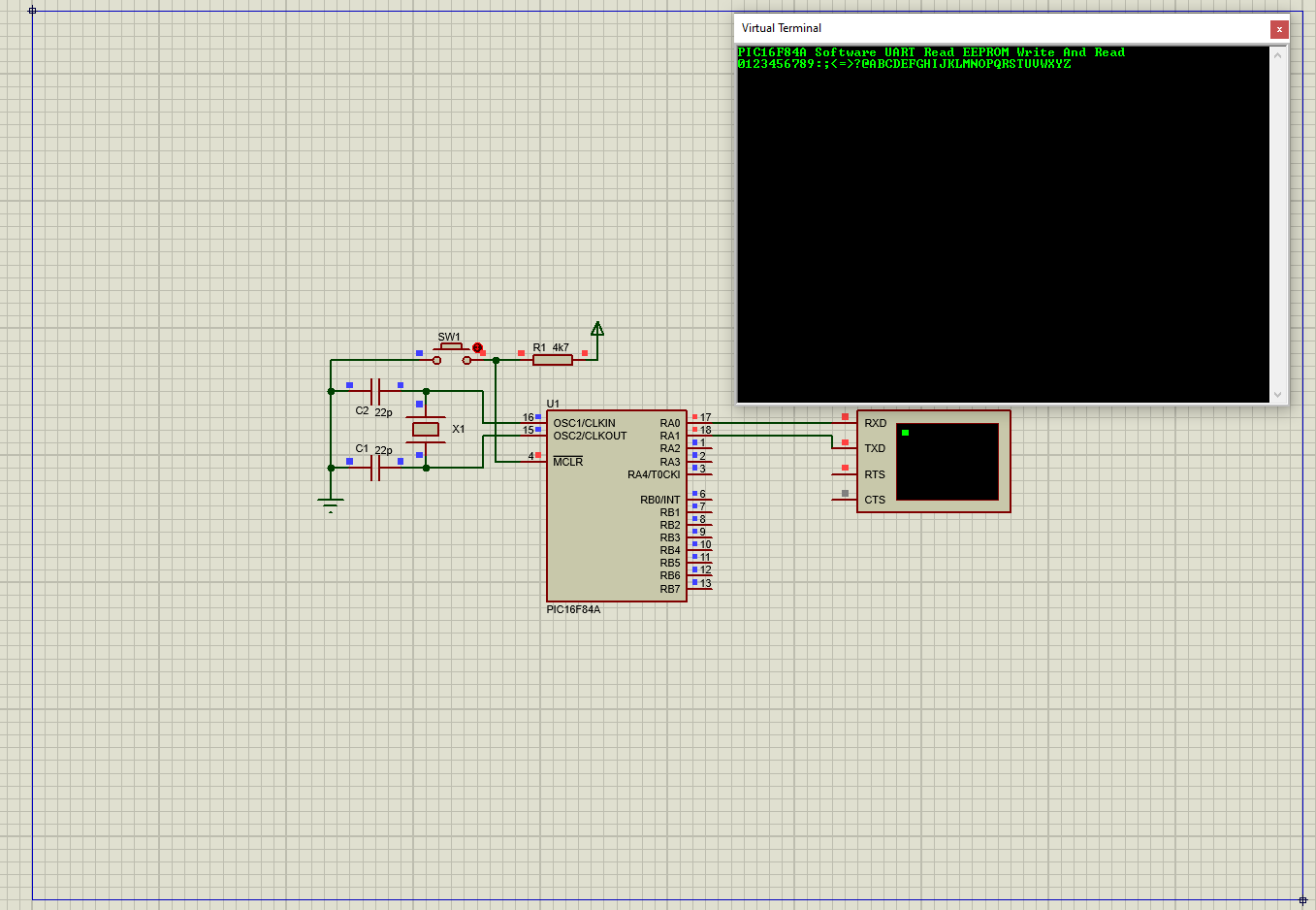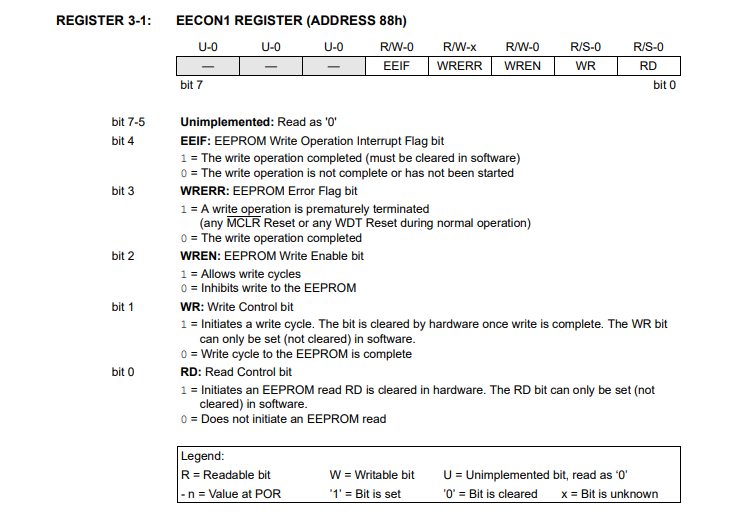PIC16F84A contains 68 bytes of EEPROM non-volatile memory. It's useful for storing some setting parameters when the MCU is powered off. EEPROM has a slower access time than SRAM and Flash memory. But it has a higher endurance compares to Flash memory. We can erase or write EEPROM up to 10 million times.
 |
| Running Program |
Using a low level Assembly language or C programming language without EEPROM library, we can access to this memory via these four SRFs,
- EEDATA - EEPROM Data Register
- EEADR - EEPROM Address Register
- EECON1
- and EECON2.
EEPROM Control Regsiter 1 (EECON1) has some control bits to read, write, and status checking of EEPROM operations.
 |
| EECON1 Register |
Using XC8 we can use all of these registers to read or write to EEPROM. However XC8 compiler has a built-in EEPROM library that's very easy to use. To read or write EEPROM, we only need these functions,
- EEPROM_READ(address)
- EEPROM_WRITE(address, data) .
We just include the "xc.h" header file to call these functions.
Example #1 : EEPROM Writing And Reading
In this example, the program write a set of ASCII characters to EEPROM starting from address 0. Then the controller read them back, and they will be shown on virtual terminal. I use software UART (bit banging) to process serial data.
Click here to download this example.
Example #2: Initializing EEPROM Data
Without using the EEPROM_WRITE function, we can initialize the EEPROM space. We use the __EEPROM_DATA() macro. The input is an 8 parameters. Each parameters are the 1 byte EEPROM data. For example,
__EEPROM_DATA('H','E','L','L','O','S','I','R'); .
In this example, I initialize some ASCII characters on EEPROM space. Then the program read them back before they are sent over the software UART terminal.
Click here to download its source file.
No comments:
Post a Comment